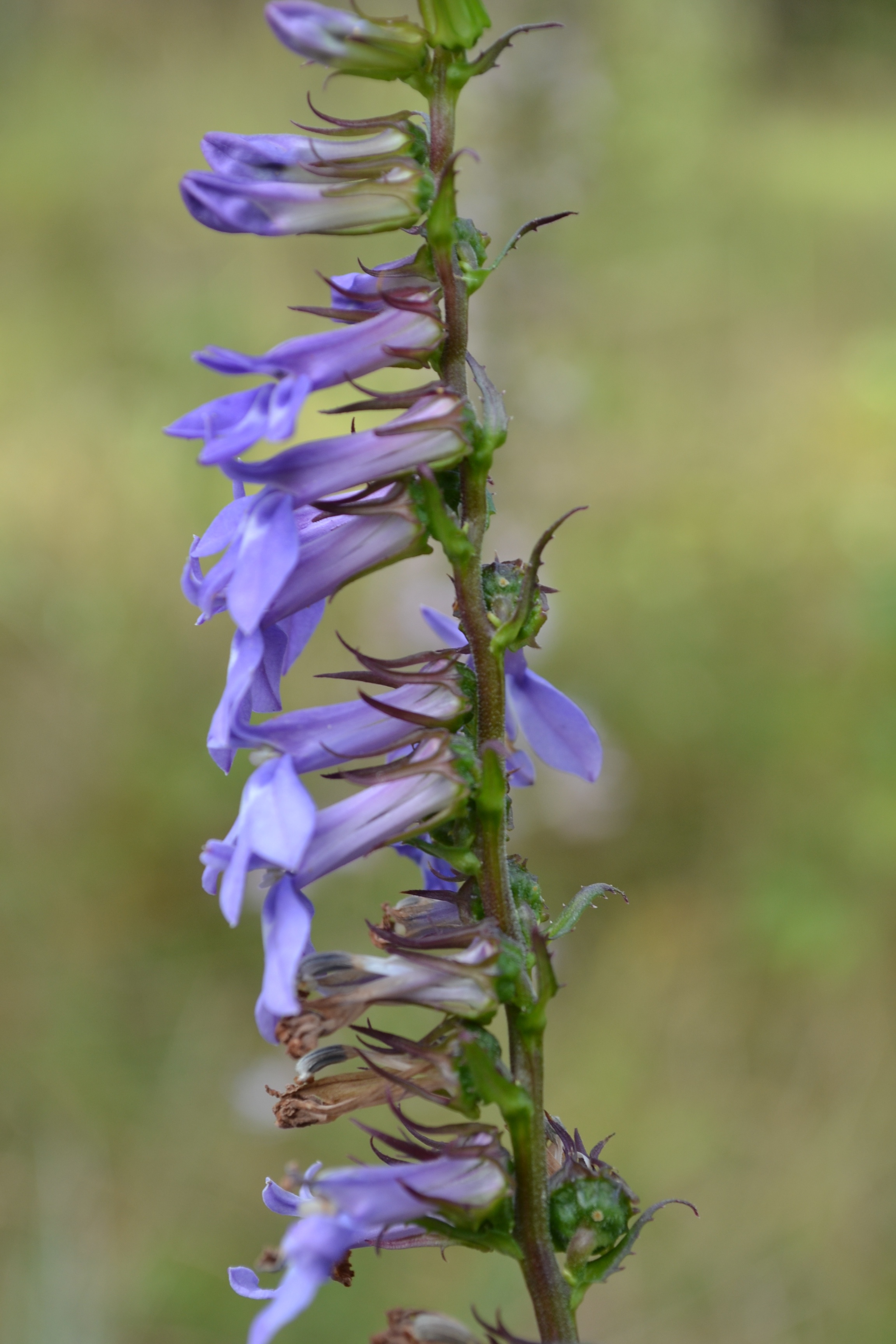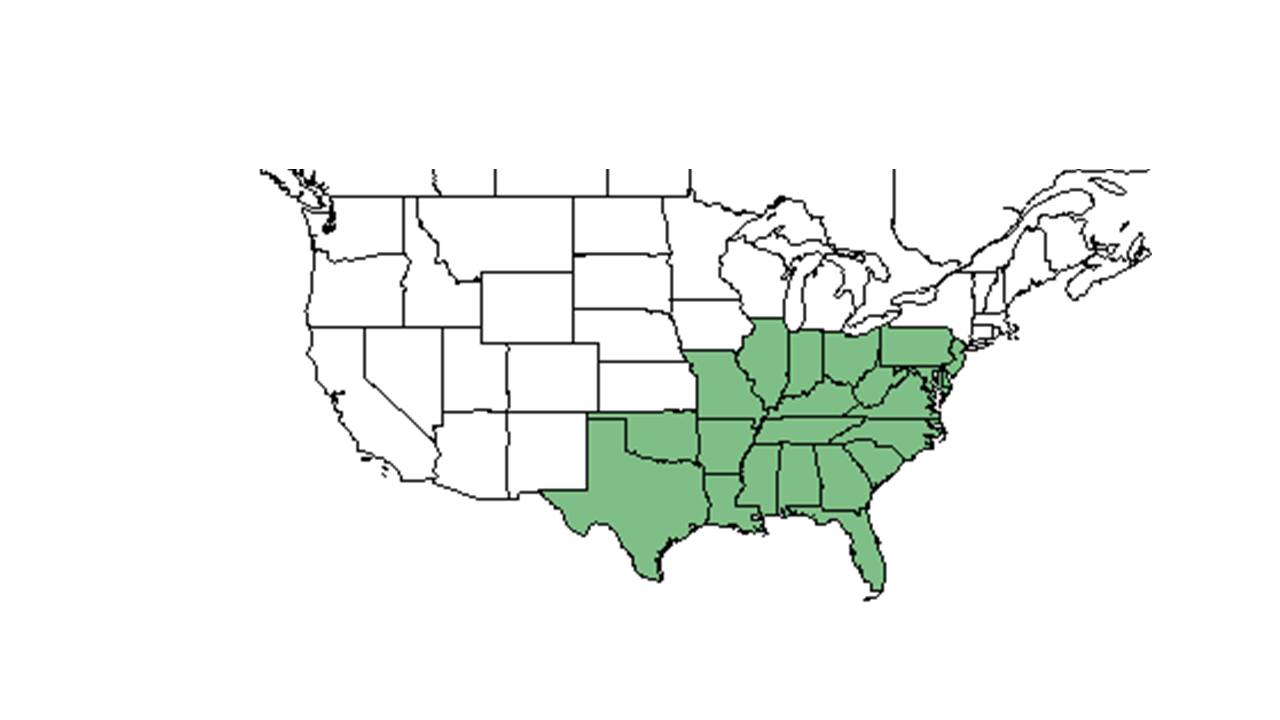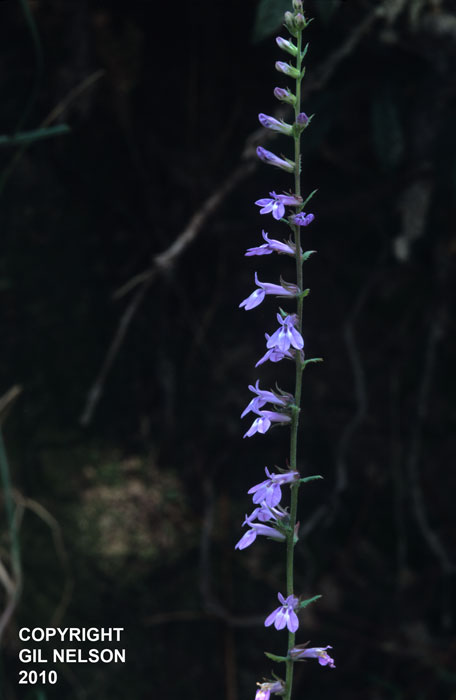Difference between revisions of "Lobelia puberula"
(→Photo Gallery) |
|||
| Line 24: | Line 24: | ||
==Ecology== | ==Ecology== | ||
===Habitat=== <!--Natural communities, human disturbed habitats, topography, hydrology, soils, light, fire regime requirements for removal of competition, etc.--> | ===Habitat=== <!--Natural communities, human disturbed habitats, topography, hydrology, soils, light, fire regime requirements for removal of competition, etc.--> | ||
| − | It is found in burned and unburned patches of degraded longleaf pine sandhill in the southeastern United States (Heuberger and Putz 2003). | + | It is found in burned and unburned patches of degraded longleaf pine sandhill in the southeastern United States (Heuberger and Putz 2003). This species is also found in pine flatlands, boggy clearings, upland pine-oak woodlands, ravines, along limestone glades, and along riverbanks (FSU Herbarium). It can occur in dry, sandy soils, loamy soils, clays, and moist soils of wetlands in open to partial shaded areas (FSU Herbarium). ''L. puberula '' has also been found growing in human disturbed areas such as ditches and along roadsides (FSU Herbarium). |
===Phenology=== <!--Timing off flowering, fruiting, seed dispersal, and environmental triggers. Cite PanFlora website if appropriate: http://www.gilnelson.com/PanFlora/ --> | ===Phenology=== <!--Timing off flowering, fruiting, seed dispersal, and environmental triggers. Cite PanFlora website if appropriate: http://www.gilnelson.com/PanFlora/ --> | ||
Revision as of 17:14, 20 July 2015
| Lobelia puberula | |
|---|---|

| |
| Photo taken by Kevin Robertson | |
| Scientific classification | |
| Kingdom: | Plantae |
| Division: | Magnoliophyta - Flowering plants |
| Class: | Magnoliopsida – Dicotyledons |
| Order: | Campanulales |
| Family: | Campanulaceae |
| Genus: | Lobelia |
| Species: | L. puberula |
| Binomial name | |
| Lobelia puberula Michx. | |

| |
| Natural range of Lobelia puberula from USDA NRCS Plants Database. | |
Contents
Description
Common Name: downy lobelia
Distribution
Ecology
Habitat
It is found in burned and unburned patches of degraded longleaf pine sandhill in the southeastern United States (Heuberger and Putz 2003). This species is also found in pine flatlands, boggy clearings, upland pine-oak woodlands, ravines, along limestone glades, and along riverbanks (FSU Herbarium). It can occur in dry, sandy soils, loamy soils, clays, and moist soils of wetlands in open to partial shaded areas (FSU Herbarium). L. puberula has also been found growing in human disturbed areas such as ditches and along roadsides (FSU Herbarium).
Phenology
Seed dispersal
Seed bank and germination
Several short-lived perennial forbs also have a seed bank persistent for at least several years (Platt et al 2006).
Fire ecology
Pollination
Use by animals
Diseases and parasites
Conservation and Management
Cultivation and restoration
Photo Gallery
References and notes
Heuberger, K. A. and F. E. Putz (2003). "Fire in the suburbs: ecological impacts of prescribed fire in small remnants of longleaf pine (Pinus palustris) sandhill." Restoration Ecology 11: 72-81.
Platt, W. J., S. M. Carr, et al. (2006). "Pine savanna overstorey influences on ground-cover biodiversity." Applied Vegetation Science 9: 37-50.
